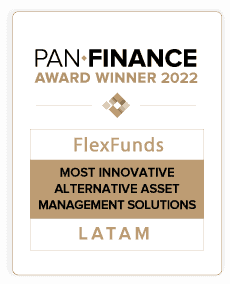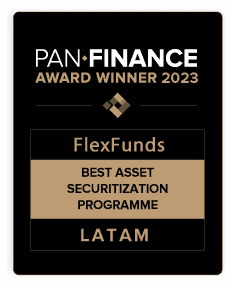- This article explains what index funds are, the most important categories, and how these financial vehicles impact the markets.
- The information may be useful for finance professionals seeking simple and cost-effective investment alternatives to diversify their portfolios.
- FlexFunds allows for the securitization of index funds to reach a broader customer base. If you wish to delve deeper into the products developed by FlexFunds and find the solution that best suits your needs, feel free to contact our team of specialists.
Index funds facilitate easy diversification
Among the myriad investment options available today, index funds are one of the most popular, primarily because they allow easy diversification.
In fact, due to this quality, they gained significant popularity in recent decades, to the point of making a solid impact on global financial markets.
What is an index fund?
An index fund is a type of mutual fund that aims to replicate the performance of a specific index, such as the S&P 500 or Nasdaq 100.
By tracking an established metric without aiming to outperform it, index funds are considered passive investment vehicles, implying their costs are low.
For these reasons, investors have increasingly turned to index funds since their launch in 1976 by The Vanguard Group.
The most popular index funds
Currently, hundreds of index funds are traded in capital markets, following various metrics and focusing on different industries. However, some essential categories can be highlighted:
1. Equity index funds
These mutual funds track the performance of specific stock indices, such as the S&P 500 or Nasdaq 100, as well as others like Dow Jones or Russell 2000.
2. Bond index funds
Bond index funds focus on specific fixed-income financial instruments, whether public or private, to generate stability and periodic income in a diversified manner.
3. Total market index funds
Total market index funds are so named because they replicate the performance of an entire investment market. For example, if focused on the U.S. bond market, they would purchase all assets within the class, not just a specific group.
4. Mixed index funds
Mixed index funds combine two or more asset classes, usually stocks and bonds, to offer a balanced return that combines the potential of equities with the stability of fixed income.
5. International index funds
In this case, the fund focuses on tracking the performance of a basket of international indices of any asset type to avoid risks associated with a single country, such as monetary measures or geopolitical conflicts.
It’s important to note that an existing fund can be securitized to become a listed product on the stock exchange (ETP, Exchange-Traded Product) through FlexFunds. To learn more about this option, don’t hesitate to contact our team of specialists.
The impact of index funds on markets
Due to their low cost and the ability to diversify widely and easily, index funds have gained astonishing popularity in recent decades.
According to an S&P Dow Jones Indices report, index funds currently cover about a quarter of the market capitalization of the entire U.S. stock market, with over USD 7 trillion following just the S&P 500.
However, the size that index funds have reached can be a concern for the stability of global financial markets, according to some experts.
For example, John Coates, vice dean of Harvard Law School and former general counsel of the U.S. Securities and Exchange Commission, explained that only four major index fund managers (State Street, BlackRock, Vanguard, and Fidelity) control around 25% of all shares of each public company.
“When you get to 50%, you control the company. There are no fights. There’s not even a discussion, and that’s quite worrisome: the idea that a small number of people can control all businesses in the United States,” he said.
In any case, there is still a way to go before such a situation arises, if it ever does. In the meantime, index funds will continue to grow and gain popularity for simply enabling diversified and cost-effective investments.
Remember that if you want to securitize an index fund to reach a wider customer base, you can contact our team of experts. At FlexFunds, we will be delighted to assist you.
Sources:
- https://www.forbes.com/advisor/investing/what-are-index-funds/
- https://www.wbur.org/onpoint/2023/08/07/how-index-funds-are-shaping-corporations-and-the-american-economy
- https://www.cnbc.com/2023/02/22/growth-of-etfs-and-index-investing-is-no-threat-to-market-efficiency-study-says.html







